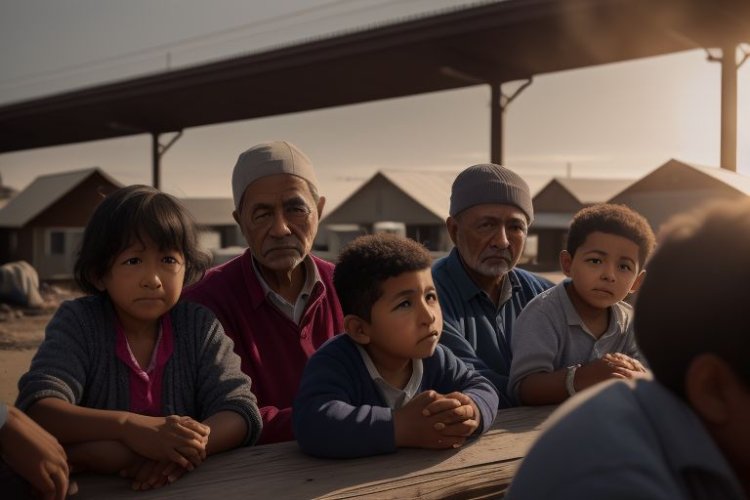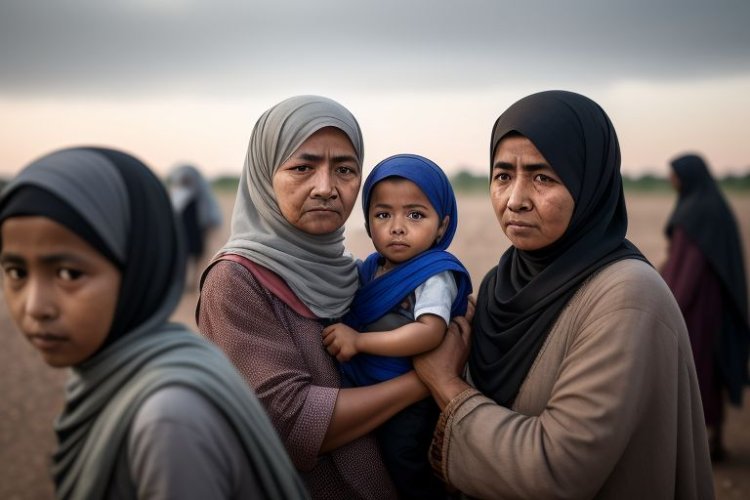Addressing Global Refugee Crises
The World Subnational Refugee Prevention and Management Agency WSRPMA work in partnership with numerous local and international organizations to prevent the creation of refugees and in times of humanitarian crisis, engage in emergency intervention playing a vital role in providing immediate assistance and support to refugees with a fundamental objective to alleviate suffering and prevent further loss of life by swiftly addressing the pressing needs of those affected.

Refugee Crisis
The unprecedented scale of today's refugee crisis demands a comprehensive analysis of its root causes to effectively prevent and address its underlying factors. While conflicts and persecution undoubtedly drive forced displacement, it is always crucial to delve deeper into the multifaceted dynamics that contribute to this humanitarian catastrophe. Political instability and governance failures play a significant role in triggering mass migration. Weak institutions, corruption, and lack of genuine, honest and transparent governing processes often result in social unrest, violence, and wars. Other causes include lack of equality of nations, marginalization and biased international interests.

These conditions force individuals to flee their homes in search of safety and stability elsewhere. Economic disparities also fuel the refugee crisis. Widespread poverty, unemployment, and limited access to essential services create an environment where people are left with no choice but to seek better opportunities elsewhere. Inadequate economic development strategies further exacerbate these disparities, perpetuating a cycle of poverty that drives migration.
Environmental factors cannot be overlooked either. Induced disasters -climate change, such as droughts or floods, destroy livelihoods and exacerbate resource scarcity. As communities struggle to cope with these environmental challenges, many are forced to abandon their homes in search of survival elsewhere. Addressing the root causes requires comprehensive efforts that go beyond emergency interventions alone.
Preventive Measures: Addressing The Underlying Causes To Avert Future Displacements
To effectively tackle the refugee crisis, it is crucial to focus on preventive measures that address the underlying causes, thus averting future displacements. Firstly, focusing and investing in conflict prevention and resolution is essential. Diplomatic efforts should be intensified to promote dialogue, peace negotiations, and reconciliation among disputing/warring parties. By addressing the root causes of conflicts and fostering stability, we can significantly reduce forced displacement.
Secondly, addressing socio-economic inequalities is paramount. Economic disparities often lead to social unrest and conflict. Prioritizing poverty alleviation programs, sustainable development initiatives, and inclusive economic growth strategies will make a big positive difference. Empowering vulnerable communities through access to quality education and healthcare can also contribute to reducing displacement risks. Furthermore, promoting honest, transparent good governance practices is crucial in preventing future crises. Transparency, accountability, and respect for human rights are fundamental principles that must be upheld worldwide.
By strengthening democratic institutions, combating corruption, and ensuring equal access to justice for all citizens, we can foster stable societies that are less prone to displacement. Lastly, proactive disaster risk reduction measures should be implemented. The human induced climate change-related disasters have been significant drivers of forced migration in recent years.
Emergency Intervention: Providing Immediate Assistance And Support To Refugees In Crisis
The World Subnational Refugee Prevention and Management Agency WSRPMA work in partnership with numerous local and international organizations to prevent the creation of refugees and in times of humanitarian crisis, engage in emergency intervention playing a vital role in providing immediate assistance and support to refugees with a fundamental objective to alleviate suffering and prevent further loss of life by swiftly addressing the pressing needs of those affected. The primary focus of emergency intervention is centered around three key areas: shelter, healthcare, and food security. First and foremost, ensuring access to safe and adequate shelter is crucial for displaced individuals.
Temporary shelters are set up to provide protection from the elements, promote personal safety, and offer a sense of stability during chaotic times. Additionally, providing healthcare services is paramount for addressing the physical and mental well-being of refugees. Emergency medical teams are deployed to treat injuries, diseases, malnutrition, and other health-related issues prevalent among displaced populations. Mental health support programs are also implemented to address trauma resulting from conflict or displacement. Above all, strategic efforts are made to tackle the situation through preventive de-escalating measures.
Lastly, guaranteeing food security through timely distribution of nutritious meals is essential for preventing hunger among refugees. Emergency food aid programs aim at meeting immediate nutritional needs by supplying staple foods such as grains, pulses, oil, and fortified products. Overall, emergency intervention serves as a lifeline for refugees in crisis situations.




















